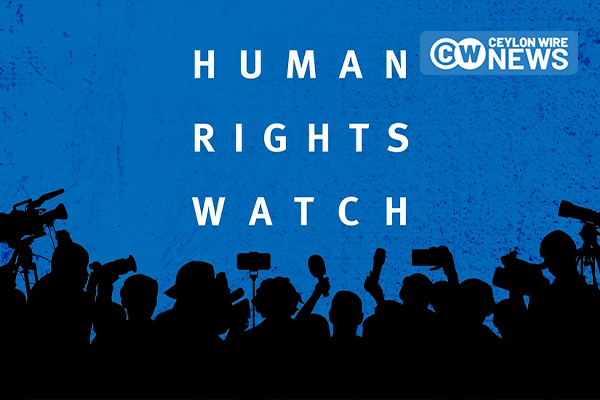The Human Rights Watch (HRW) has voiced concerns over Sri Lanka’s proposed Online Safety Bill, stating that it could lead to broad and vague speech-related offenses carrying severe penalties and pose a critical threat to the right to freedom of expression.
In a statement, HRW highlighted that the proposed legislation, if rushed through parliament, would introduce new speech-related offenses with lengthy prison terms, potentially impacting freedom of expression as the country prepares for upcoming parliamentary and presidential elections later this year.
The Online Safety Bill, ostensibly designed to address online harassment, abuse, and fraud, is criticized by HRW for primarily focusing on the establishment of an “Online Safety Commission.” This commission, appointed by the president, would have the authority to determine what online speech is deemed “false” or “harmful,” leading to the removal of content, internet access restrictions, and prosecution of individuals and organizations.
Furthermore, HRW expressed concern that the commission-appointed “experts” would be granted powers to enter and search suspects’ premises. Offenses under the proposed law carry hefty fines and prison sentences of up to five years. The United Nations Human Rights Office cautioned that the law could potentially criminalize various forms of legitimate expression, creating a chilling effect on freedom of expression.
The Asia Internet Coalition, comprising tech giants like Google, Apple, and Meta, labeled the bill as a “draconian system to stifle dissent,” warning of potential adverse impacts on Sri Lanka’s digital economy.
The statement also highlighted other repressive legislation before parliament, including a broadcasting law that UN experts believe could suppress dissenting voices and a counterterrorism law that grants extensive powers to the police and military, lacking adequate judicial oversight.
The HRW stressed that Sri Lanka’s history of repressive laws has contributed to widespread human rights violations, economic crises, and political instability. Passing the Online Safety Bill, according to HRW, would represent a disastrous setback for the country.









